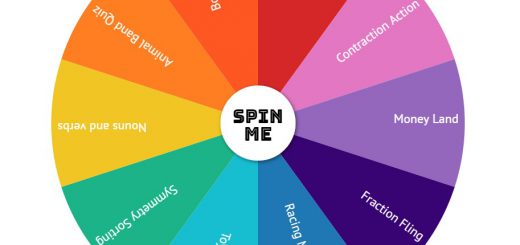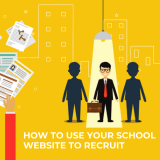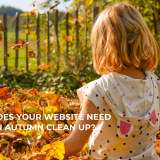School guide to Facebook 2023

Facebook is a great place to share information with friends and family – holiday snaps and selfies of you out on your birthday. But this can make it seem like a more personal, rather than a professional space. Schools usually shy away from a school Facebook account completely, apart from a yearly training evening warning parents, pupils, and even staff, to lock down their profiles and make sure no-one can find them! Stranger danger worries abound, and rightly so, as it can be a worry having pupils on Facebook especially as many lie to say they are over 13 in order to get an account.
However, if you do lock everything down properly and follow the rules then it is a really useful place for sharing and discussions. Our Twitter guide talks about how you can use Twitter for schools sharing achievements and information. However, far greater numbers of staff and parents will use Facebook than Twitter from a personal front. Staff might be having a look through lesson ideas in educational groups, and parents are often scrolling Facebook just at the time you need to remind them that their children need a packed lunch for the trip tomorrow! So why not go and meet them at the place they are instead of paying huge sums for communication tools and learning environments to deliver the same information? It’s certainly worth considering at least!
Using Facebook as an individual teacher
As a teacher you may have already found a wealth of great educational groups and pages to join to get resources and debate ideas in and around education. Some of these are led by commercial entities such as Twinkl and 2Simple, but usually on Facebook they are there to help and support rather than trying to directly sell to you (not that you won’t see a few ads as well!) They also offer a place where multiple schools and teachers who do use their products can swap ideas on how you use them and links to good resources you may have missed. This is often vital when company help desks are usually closed – at the weekends – when teachers are still working.
There are also discussion groups specifically set up to have debates about the latest education news and news “from on high” and these can be hugely informative, although they can also descend into arguments if you are not careful! You will soon see that everything you thought was great about teaching, someone else will think it’s awful. So pick your groups and chats carefully and don’t go too deep into the comments when it is annoying you or it will only get worse! Unlike Twitter, it is much harder to be anonymous on Facebook so ensure your account is locked down and that you are not being traced back to school from some negative remarks!
Why might you use Facebook as a school?
Schools are especially worried about Facebook as it can be the place that parents go to moan about school policies they don’t like, or where disgruntled parents or even ex-pupils create pages designed to moan about the school. Which is very difficult and can make schools wary about getting involved. For that reason it is actually even more important that schools take control of that themselves rather than finding they are excluded from a group they would quite like to be in to put their point across in, or at least know what is being said.
With a school Facebook page to inform and discuss with parents there is actually a lot of control you have in terms of how it is managed and who can post what. It does mean you may need a couple of teachers, or even a few, to be admins of the group or page and keep things going. But it can be much less work than a learning platform or other communication tool, as at least you never need to deal with parent logins and suchlike as that is all taken care of through the Facebook profile they no doubt have already.
A School Facebook Page or A Group – which is best?
A Facebook Page is a bit like an advertising area – it is visible to anyone who can find it on Facebook. This means you don’t have to worry about approving requests to join, but does mean you might get spammed with other advertising in the comments, or find comments from people who have nothing to do with your school. It also means you can post everything to a much wider audience but this may be a good or a bad thing. Most people probably don’t need your exam timetable for example! You can still delete comments if they are not relevant or appropriate but this requires a lot of moderation.
A Group gives you much more control over who can join the group. You can make the group fully open and allow anyone to join, or have it available so that people can request access and you can approve them, or even lock it fully and send a link to parents in emails to allow them to request access. When requesting access you can ask a set of questions that they must answer so that you can check they are actually parents from the school (useful when many have different surnames or people use maiden names etc on Facebook) which can help to validate members.
A Group is much more centred around discussions. This means that you can post information but also just use it as a place for parents to swap ideas and information. You can set it up so that they cannot post directly so that you can moderate posts made by parents, and you can delete inappropriate comments. You can also remove members of the group if they break the group rules. This option also means you are safer to share photos from school as when you lock group membership you also make each post unshareable by default. This doesn’t stop every possible breach – some may screenshot information – but reminds people that sharing is not allowed which most people will abide by.
You can set up one group/page for the whole school, or one per year group or subject, depending on your need. If you have a Resource Provision you may also want a group specific to the parents of the pupils involved so that they can share their own more niche questions.
Facebook for students too?
For Secondary schools and FE it may even be suitable to set up Facebook groups for teachers to use instead of learning platforms to share homework and tips. You may even consider Facebook Live streaming to facilitate little revision lessons from home during holidays and evenings in the run up to exam time (we are not assuming they will do this for free but as a replacement for revision sessions schools often run in school. This way they can all be in the comfort of their own homes and you don’t need to pay the premises manager to unlock the school as well!)
If teachers are to be using Facebook for students to connect with them for school reasons it is worth them setting up a second Facebook account for their teacher profile. Facebook does like everyone on Facebook to have one authentic profile but they do not mind teachers having a profile as “Miss Collins” or similar which is separate to their personal accounts. This also helps pupils to remember that in the school pages and groups they are there for school information and the rules should mirror school rules and be respectful.
Private Messaging
Pupils and parents will be able to, by default, also send private messages via Facebook to either the school or the teacher “Miss Collins” accounts. You may wish to keep this as it can be an accessible way for people to connect outside of school hours. However you can stop individual people messaging or you can turn off messaging altogether so this is definitely an optional extra. You can also choose, as the teacher account, to turn off your messaging or notifications at certain times or on weekends and in holidays.
Again this may be a great way to create engagement so don’t dismiss it completely even if you want to turn it off to start with. Once you are confident everyone is using your Facebook pages and/or groups appropriately you can branch out into these other functions.
School Facebook Advertising
As a Facebook Page you can even use this as an advertising page. Independent schools often do this well already but state schools and MATs are now realising that a promoted Facebook post can be a great way to target local parents and ensure your school is at the forefront of their minds. You can choose to make an advert of your website launch, or a virtual tour of the school or video, or you could simply make an advert for your upcoming Open Days.
You may also want to use Facebook just for your PTA to advertise their activities to the local community and encourage local businesses to connect and get involved or donate. If you have a bonfire and fireworks evening at school, or a Christmas fayre coming up, or even if you want to rent out your school hall and grounds to community groups and for birthday parties, targeted Facebook advertising is one of the most cost-effective solutions there is. You can set up adverts which target parents within a set radius of your school. You can also repost adverts from your page onto local Facebook community groups.
Banish the Facebook Fear
There is no doubt that there is a lot to look out for on Facebook to ensure you lock accounts accordingly. However there is very little reason to avoid it altogether. It is much cheaper than many other solutions to the same problem. If home-school communications are tricky and you have tried everything else, it may well be the answer you are looking for.If you liked this post, you may also be interested in our guide to Twitter in schools.













